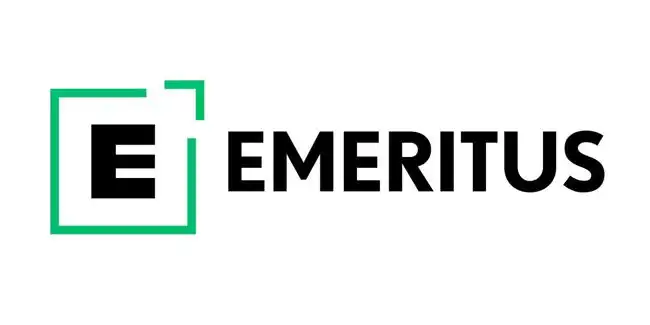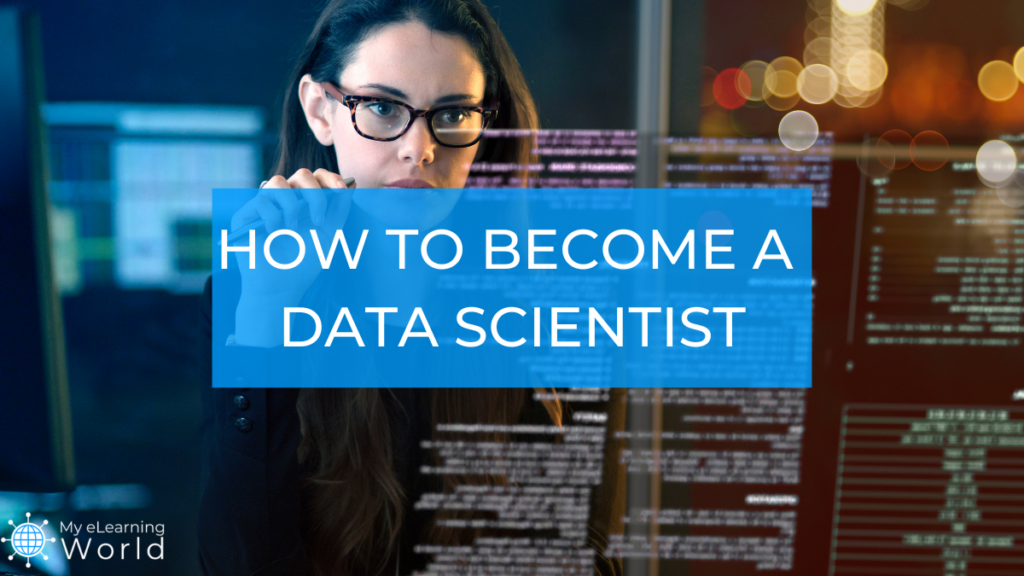Are you looking for guidance on how to become a data scientist without a degree?
Data scientists are highly in demand in today’s job market. According to data from the Bureau of Labor Statistics, “employment of data scientists is projected to grow 36 percent from 2021 to 2031, much faster than the average for all occupations.”
Data scientist jobs also pay very well, with the BLS data showing a median salary of $100,910 in 2021.
Data scientists are responsible for analyzing big data and using it to make groundbreaking advancements in fields such as artificial intelligence and medicine.
But it’s not just tech companies that are looking for data scientists. Private corporations are also leveraging data to make informed decisions, making data science a sought-after skillset in many industries.
If you’re interested in a career in data science but don’t have a degree, you may be wondering if it’s even possible to break into the field.
Contrary to popular belief, not all data scientists need a Master’s or Doctorate degree. In fact, recent data shows over 25% of data scientists have a Bachelor’s degree or less. In other words, the traditional route of going and getting your Master’s degree — or any degree for that matter — in data science isn’t always necessary for launching a successful career in the field.
The good news is that with some of today’s advanced online learning platforms, like Emeritus, it is possible to get the training you need to become a data scientist without a degree – but it will take some extra effort on your part.
To become a data scientist without a degree, it’s important to first understand the essence of data science and the job of a data scientist. Although often mixed up with data analysts and statisticians, data science has its own unique features. This article will delve into the skills required to excel in data science and how to go about getting them.
Disclosure: Some of the links in this article are affiliate links, meaning at no additional cost for you, we might get a commission if you click the link and purchase.
What is a Data Scientist?
Data scientists are responsible for analyzing data to find trends and patterns that can be used to make decisions about everything from product development to marketing campaigns.
They use their findings to help businesses improve their operations, grow their revenue, and better serve their customers. As a result, they work in a variety of industries performing different tasks. For example, a data scientist working for a retail company may be responsible for analyzing customer purchase data to find trends that can be used to improve the company’s marketing strategy.
On the other hand, a data scientist working for a healthcare organization may be responsible for analyzing patient data to find trends that can be used to improve the quality of care.
Data science encompasses a wide range of fields, including data engineering, data mining, mathematics, statistics, advanced computing, and model visualization. Moreover, it plays a crucial role in the development of artificial intelligence, machine learning, and deep learning.
What Skills Do You Need to Become a Data Scientist?
A career as a data scientist is exciting, but also demanding. Success in the field demands having certain skills come easily to you from being highly developed.
What are these skills?
Here are some of the essential skills you’ll need to succeed at a data science job:
- Technical skills. Technical knowledge of statistical analysis, coding languages, and data visualization tools is important for data scientists. Statistical analysis skills are necessary for identifying patterns in data. Coding languages like Python are commonly used by data scientists to perform statistical analysis. Data visualization tools are used to turn complex data sets into easy-to-understand visualizations. You’ll also need to have strong familiarity with machine learning algorithms.
- Analytical thinking. Data scientists need to be able to take large amounts of data and identify patterns and correlations that can help inform decisions. This requires strong analytical thinking skills.
- Math knowledge. Not surprisingly, data scientists need to have a strong foundation in math. Math skills are necessary for understanding the data, formulating hypotheses, and developing models. In particular, data scientists should have a good understanding of calculus, linear algebra, and statistics and probability.
- Communication. Data scientists also need to be able to communicate their findings to non-technical staff and decision-makers. They need to be able to understand the business’s goals and objectives and align their findings with those goals. Additionally, they need to be able to present their findings in a way that is easy for non-technical staff to understand. For instance, they may need to present their findings in the form of a report, infographic, or presentation.
- Problem-solving skills. Data scientists need to be able to identify problems that can be solved with data and then use their technical skills to solve those problems. For example, a data scientist working for a retail company may identify a problem with the company’s marketing strategy. They would then use their statistical analysis skills to find a solution to that problem like identifying a new customer segment to target.
- Project management. Data scientists often work on projects with different moving parts. As a result, they need to be able to manage those projects effectively. They need to be able to monitor the progress of the project, identify risks, and adjust the project plan as needed. For instance, a data scientist working on a project to improve the quality of healthcare may need to manage a team of analysts, coordinate with different departments within the healthcare organization, and ensure that the project is completed on time and within budget.
A Step-by-Step Guide to Becoming a Data Scientist Without a Degree
Degrees are expensive, especially a degree in data science which can run upwards of $100,000. Degrees also take 4 years to complete on average, and you can add a few more years on top of that if you’re pursuing a Master’s degree in the field. That’s several years of your life when you could be working and earning money instead of going to school.
So how do you become a data scientist if you don’t have the money to pay for a degree or the time to pursue it?
Here is a step-by-step guide to breaking into the data science field without going down the traditional educational path:
1. Learn with Online Courses
 Emeritus | Empowering Learners Globally | Online Courses
Emeritus | Empowering Learners Globally | Online Courses
Emeritus is the global leader in making world-class, professional education from top universities accessible and affordable for everyone. With online courses, bootcamps, degree programs, professional certificates, and senior executive programs, Emeritus helps individuals build in-demand, future-ready skills in a wide range of industries.
Online courses are a great way to learn data science basics without spending a lot of money or taking 4 years to complete a degree.
These days, it’s possible to take courses from world-class universities without ever stepping foot on campus or even enrolling at the school.
Plenty of online courses cover everything from the fundamentals of data science to advanced concepts and allow you to start learning immediately.
There are many different providers of online data science courses and data science bootcamps, but our recommendation for those looking for comprehensive data science training is Emeritus.
With over 60 top university partnerships, Emeritus offers affordable and accessible online classes and certificate programs for the average person.
Using advanced technology, innovative curriculum, and expert instruction from top educators, Emeritus has helped over 250,000 individuals in 80 countries acquire the knowledge and skills needed for in-demand careers.
You can get the right skills and knowledge to enter the field of data science in just a few months with their online classes.
Online data science courses from Emeritus offer a number of benefits:
- Gain hands-on, applicable skills in a short time for faster learning in data science.
- Learn the right material for securing a career as a data scientist.
- More affordable and flexible than traditional universities, as many online classes can be done part-time.
- Opportunity to learn from other data scientists and stay up-to-date on the latest market and employer needs.
Emeritus boasts an exceptional selection of data science courses and certificate programs from some of the world’s most renowned institutions, including:
 MIT xPRO Bootcamp | Data Science and Analytics Online Course | Professional Certificate in Data Science and Analytics
MIT xPRO Bootcamp | Data Science and Analytics Online Course | Professional Certificate in Data Science and Analytics
The future is being shaped by data, and if you want to be ahead of the curve, the MIT xPRO Professional Certificate in Data Science and Analytics is the way to go. This program will equip you with the tools and expertise necessary to make modern-day decisions and excel in the ever-growing field of data science. Get ready to level up your skills and join the ranks of in-demand data experts.
 Data Science Program | Berkeley Executive Education
Data Science Program | Berkeley Executive Education
In this online program, you'll learn the basics of statistics and analytics so you can build a solid foundation in data science. The course will help you familiarize yourself with the tools of analytics, practical, real-world business applications of data concepts and tools, and the language and skills to work effectively with your data team.
 Singapore Management University Data Science & Analytics for Strategic Decisions Programme | Online Certificate Program
Singapore Management University Data Science & Analytics for Strategic Decisions Programme | Online Certificate Program
This in-depth online program will teach you how to leverage data science to create and implement highly effective business strategies, make sound data-driven decisions to solve your biggest problems, use data to gain an edge over your competition, and more.
Click here to explore everything Emeritus has to offer.
2. Get Practical Experience
In addition to taking courses, it’s also important to get practical experience working with data. There are several approaches to getting the experience you need before landing a real data science job.
First, you can participate in online data science competitions. These competitions are a great way to hone your skills and show potential employers what you’re capable of.
Additionally, you can look for internships at companies that work with data. Even if the position isn’t explicitly for a “data scientist,” you’ll still gain valuable experience working with data that you can use on your resume and in future job applications.
You can also try to find a mentor who works as a data scientist. A mentor can help you learn more about the field, identify resources and opportunities, and give you advice on your career journey. If you don’t know anyone who works as a data scientist, there are several online communities (such as Women in Data Science) that can connect you with a mentor.
3. Build a Portfolio
Once you have the skills and experience necessary, it’s time to start building your portfolio so you can land your first data science job. Your portfolio should showcase the projects you’ve worked on and the skills you have developed. For each project, be sure to include a description of what you did, the data you used, and the results you achieved.
Additionally, if possible, include links to any code you wrote or visualizations you created. By having a strong portfolio, you’ll be able to demonstrate to potential employers that you have the skills and experience necessary to be a successful data scientist.
4. Sign up for Freelancing Sites
Once you have a strong portfolio, you can start looking for data science jobs by signing up for freelancing sites. On these sites, you can create a profile that includes your skills, experience, and portfolio. Then, when companies post data science projects, you can apply to work on them.
This is a great way to get started in your data science career without having to commit to a full-time position.
Plus there are a lot of great benefits to freelancing. You bet to set your hours, work from anywhere in the world, and choose projects that interest you.
5. Network with Other Data Scientists
In addition to finding jobs through freelancing sites, it’s also important to network with other data scientists. This can be done by attending data science meetups or conferences, participating in online forums, or even just connecting with people on social media.
By networking with other data scientists, you’ll be able to learn about new opportunities, get advice and feedback on your work, and make connections that can help you further your data science career.
When networking with other data scientists, be sure to focus on building relationships rather than trying to sell yourself. You want to come across as someone interested in collaborating and learning, rather than someone who is just looking for a job.
6. Keep up With the Latest Tools and Trends
Finally, it’s important to keep up with the latest tools and trends in data science. This can be done by reading data science blogs, following data science leaders on social media, and subscribing to data science newsletters.
By staying up-to-date on the latest developments in data science, you’ll be able to make sure your skills are current and you’re aware of the latest job opportunities.
Additionally, keeping up with the latest trends will also help you be more successful in your data science projects. By using the latest tools and techniques, you’ll be able to work more efficiently and produce better results.
Tips for Landing Your First Data Science Job
Once you’ve got all the training and hands-on experience you can, it’s time to try to land a data science role with an employer.
Here are some tips to help you land your first data science job:
- Build a strong online presence. With social media and other online platforms, employers can quickly get a feel for who you are and what type of work you’re capable of doing. Make sure your online presence reflects the skills and experience that make you stand out as a data scientist.
- Craft your resume carefully. A strong resume can make all the difference when it comes to getting your first data science job. Highlight your education/training as well as any successful projects you’ve completed, including details about the tools and techniques you used. Make sure you’re paying close attention to the skills employers are looking for in their job listings and tailor your resume around those keywords and attributes.
- Prepare meticulously for interviews. Once you’ve gotten your foot in the door and landed an interview with a company, you need to prepare carefully so you knock it out of the park. Spend time researching the prospective employer as much as you can, getting an idea of their culture so you can present yourself accordingly as the perfect fit. You’ll also want to rehearse common data science interview questions and practice your answers to them. Being able to present a successful project you’ve worked on in detail can go a long way in showing off the skills and knowledge you bring to the table. Don’t forget to be yourself during the interview, employers want to get a feel for your personality as well.
A Final Word on Becoming a Data Scientist Without a Degree
Data science is a career choice that offers a lot of opportunities and potential for growth. And while a data science degree can certainly help you in your career, it’s not required.
There are many ways to become a data scientist without a degree, including teaching yourself data science skills, building a strong portfolio, and networking with other data scientists.
So if you’re interested in a data science career but don’t have a degree, don’t let that stop you. With hard work and dedication, you can achieve your goals.
Do you have any questions on how to become a data scientist without a degree? Let us know in the comments below!
- How Skillshare Empowers Hobbyists and Professionals - 03/06/2025
- How Sleep Impact GPA and Career Success - 01/23/2025
- The 15 Best Cables for Studio Monitors (2025 Rankings) - 01/22/2025

